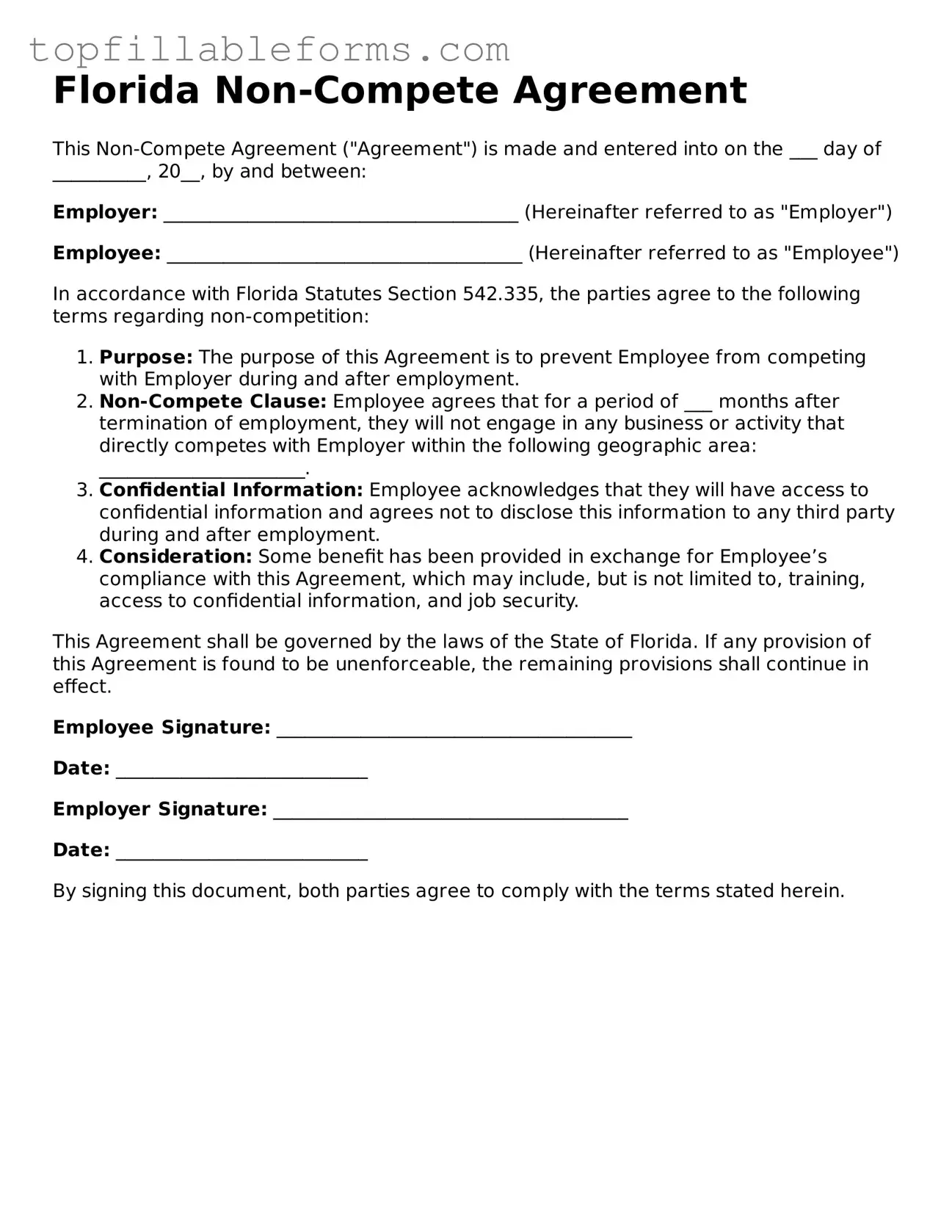Attorney-Verified Non-compete Agreement Template for Florida
A Florida Non-compete Agreement form is a legal document designed to restrict an individual's ability to engage in business activities that compete with their employer after leaving a job. This form aims to protect a company's confidential information and business interests by preventing former employees from sharing sensitive knowledge with competitors. Understanding the nuances of this agreement is crucial for both employers and employees to ensure fair practices and compliance with state laws.
Open Non-compete Agreement Editor Here

Attorney-Verified Non-compete Agreement Template for Florida
Open Non-compete Agreement Editor Here
Finish the form now and be done
Finish your Non-compete Agreement online by editing, saving, and downloading fast.
Open Non-compete Agreement Editor Here
or
▼ PDF File
